Kathleen practices in Ship Bottom, New Jersey, in the areas of Elder Law, Estate Planning, Asset Preservation, Estate Administration, Real Estate, Estate Litigation and Guardianships.
How Kathleen can help
- Elder Law
- Estate Planning
- Guardianship
- Estate Administration
- Estate Litigation
- Asset Protection
- Real Estate

The specialty of “elder law” evolved in the 1980s as it became increasingly clear that the complicated legal issues confronting seniors – in particular qualifying for Medicaid coverage of long-term care – were beyond the expertise of general-practice attorneys. In recent years, we’ve increasingly seen the field described as “elder care law” and the lawyers as “elder care” attorneys.
Elder law or elder care attorneys typically help families:
- Plan for Medicaid coverage of long-term care, and apply for coverage when the time comes
- Plan and administer an estate
- Represent guardians and conservators
- Create and administer trusts
Unlike many other areas of the law, elder law is defined by the needs of the client, rather than a particular field of law. Because of this, elder law attorneys are also aware that their clients’ needs often extend beyond basic legal services. For this reason, they are linked to a network of professionals in their community who serve the senior population. (This also may have something to do with the change in nomenclature from “elder law” to “elder care law.”)

Will
A will is a legal document containing dispositive provisions which direct the distribution of one’s property upon death. A will may also contain provisions regarding the care and custody of minor children and the naming of a personal representative (executor) to coordinate the administration of one’s estate. A will may direct outright distributions of property to heirs or may provide for the establishment of a trust to hold and manage assets for heirs.
Power of Attorney
A power of attorney nominates an individual to assume responsibility for one’s affairs in the event of a subsequent incapacity or in the event an individual is merely unwilling or unable to act due to some reason other than incapacitation. The individual nominated to manage one’s affairs and make health care decisions is called an attorney-in-fact. The powers bestowed upon an attorney-in-fact become effective immediately.
Healthcare Directive (Living Will)
A health care directive or living will is simply a formal declaration, in writing, of one’s wishes regarding the types of life saving initiatives one would or would not want to be undertaken in the event of an incapacity. These wishes are to be recognized by all attending medical care providers and others making medical care decisions on one’s behalf.
Revocable Trust
A revocable trust is an estate planning tool most often touted as a means of managing assets in the event of incapacity, avoiding probate and managing assets for the benefit of heirs. A revocable trust can be viewed as an extension of one’s self or as a small business wholly owned by an individual or couple. As the name implies, this type of trust is fully revocable and thus can be altered, amended, or otherwise disbanded by the Grantor/Settlor (owner) at any time.
A revocable trust can be funded with the assets of a single individual, or the joint assets of a husband and wife and can be utilized to manage many types of property including real property, vehicles, bank accounts, investment accounts and many more. There are three important terms with which one contemplating the use of a trust should be familiar. The term “Grantor” or “Settlor” is used to describe the creator of a trust. The “Trustee” is charged with managing the property held in the trust. A “Beneficiary” receives the benefits of the assets held in trust.
In a typical revocable trust scenario, an individual or a husband and wife are nominated as the initial trustee(s) and beneficiary(s). A family member, surviving spouse, or corporate trustee (bank) often serves as successor trustee for the benefit of heirs and other beneficiaries. A trust can be terminated upon the death of a named party or parties, or other stated event.
It is important to note that trusts are very flexible estate planning tools, the terms of which are often only limited by the creator’s own imagination.
Irrevocable Trust
Irrevocable Trusts are most often utilized to achieve specific tax related and asset protection objectives. Just as the name suggests, irrevocable trusts are generally a much more “permanent” type of estate planning tool. Transfers of assets to irrevocable trusts are generally considered completed gifts for gift and estate tax purposes and thus the assets are no longer said to belong to the transferor. This fact may provide a level of asset protection for assets transferred to an irrevocable trust. Termination or modification of irrevocable trusts generally require the consent of all named beneficiaries and/or possibly a court order.
Special Needs Trust
Special Needs Trust is a term often used interchangeably to different types of trust, the principal purpose of which is to protect a beneficiary’s entitlement to various government benefits such as SSI, SSD and Medicaid. Assets held in a Special Needs Trust or “Supplemental Needs Trust” can be used to supplement the benefits provided by a government benefits program and thereby enhance the quality of life for an individual receiving government benefits. A Special Needs Trust can be a stand alone document or can be incorporated into traditional estate planning tools such as wills and revocable living trusts in order to provide for continuing care of a disabled child, parent, or other beneficiary.

Every adult is assumed to be capable of making his or her own decisions unless a court determines otherwise. If an adult becomes incapable of making responsible decisions due to a mental disability, the court will appoint a substitute decision maker, called a “guardian.” Guardianship is a legal relationship between a competent adult (the “guardian”) and a person who, because of incapacity, is no longer able to take care of his or her own affairs (the “ward”).
The guardian can be authorized to make legal, financial, and health care decisions for the ward. Depending on the terms of the guardianship the guardian may or may not have to seek court approval for various decisions.
Some incapacitated individuals can make responsible decisions in some areas of their lives but not others. In such cases, the court may give the guardian decision making power over only those areas in which the incapacitated person is unable to make responsible decisions (a so-called “limited guardianship”). In other words, the guardian may exercise only those rights that have been removed from the ward and delegated to the guardian.

Identifying probate and non-probate assets, including an explanation of the differences between these types of assets.
Representation in the probate court, including the filing of petitions for Letters Testamentary or Letters of Administration seeking appointment of the Executor/Administrator.
Review, analysis and explanation of the decedent’s Last Will and Testament, disclaimer planning, and fulfilling statutory requirements pertaining to the issuance of proper notices to heirs and beneficiaries.
Providing an analysis of the immediate financial needs of the surviving spouse and dependent beneficiaries.
Distribution planning, addressing the timing of distributions for the surviving spouse and other beneficiaries, including minors and beneficiaries with disabilities.
Handling of family disputes concerning the administration of the decedent’s estate.
Preparation of accountings for the executor and estate beneficiaries.
Re-titling of estate assets prior to and subsequent to final distribution.
Planning for the distribution of the decedent’s IRA and other retirement plans, including analysis of beneficiary designation forms, and distribution options.
Closing and distributing of the estate, including preparation of final reports and receipts from beneficiaries.

The most common form of estate litigation is the “will contest.” Estate litigation begins when a lawsuit is filed in court challenging the validity of a purported will. A variety of grounds exist under New Jersey law to challenge the validity of a will:
Noncompliance with formalities: The focus is on whether the purported will meets the statutory requirements as to form and execution.
Revocation: The inquiry is to determine whether the will was revoked by the testator. When a contestant believes the will offered for probate has been revoked, he or she must prove the will was revoked by (a) the execution of a new will or codicil, (b) a subsequent divorce or marriage, or (c) an express act of revocation.
Fraud: The issues are whether the testator was defrauded into signing a document, through intentional misrepresentation or concealment of a material fact which induced the testator to sign the will.
Forgery: This claim involves the execution of a purported will by someone other than the testator.
Mistake: The inquiry involves whether the testator was mistaken about the nature of the document, about the contents of the will or about an underlying fact which caused the testator to sign the will based on an inaccurate belief. The contestant has the burden of proving the will did not comport with the testator’s intent.
Lack of Capacity: The issue is whether the testator lacked the mental capacity to make the will. Will contests based upon a testator’s alleged lack of mental capacity are very common types of testamentary challenges. Simply because an individual has dementia or mental illness or disease does not mean that he or she automatically lacks the requisite mental capacity to make a Last Will and Testament.
Undue Influence: This is the most common basis upon which the validity of a will is attacked. An undue influence challenge relates to whether the testator made a will freely, without being coerced by another person or persons. To prove that the will was made under undue influence, one must show that a beneficiary exercised such influence other the maker of a will so as to override the deceased’s true desires.

For each client, the Law Firm develops a comprehensive long-term care plan designed to find, get and pay for quality long-term care, while protecting the family’s assets from catastrophic Care expenses and nursing home costs. These plans often require qualifying the family for needs-based public benefits, such as SSI and Medicaid, so that the client can pay for quality care and the spouse, children and other heirs are provided with adequate income and resources. Asset protection planning strategies which may involve the transfer of client resources are often used. Wills, Living Wills, Durable Powers of Attorney and Trusts are often employed.
Long-term care planning has a single goal for the client: access to quality care. This is an essential human need in every circumstance. Unfortunately, this need often goes unmet due to cost; long-term care is the most expensive health care cost. Often, there is no insurance or other assistance available to help clients pay for long-term care. As a result, most clients use their personal savings until their assets have been depleted. They may then qualify for Medicaid and other needs-based public benefits. However, there are planning techniques available to accelerate eligibility for Medicaid and preserve assets for the spouse, family and other heirs, These techniques are used by the Law Firm to help clients obtain essential care.

Buying or selling a home is probably the most significant financial transaction anyone undertakes in their lifetime. It is an exciting time — but without proper legal guidance, the process can be frustrating, overwhelming and potentially more costly than necessary.
Even if there are no disagreements between the Buyers and Sellers, it is advisable for each party to enter into the real estate transaction with their own attorney who will represent the best interest of the respective party and help avoid common pitfalls in order to make the process as stress free and enjoyable as possible.


